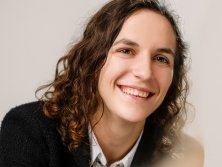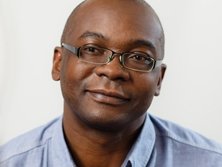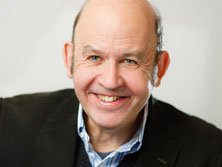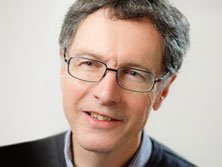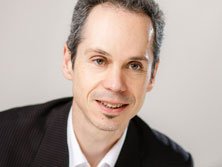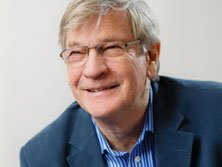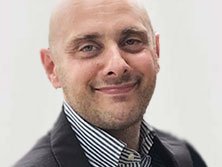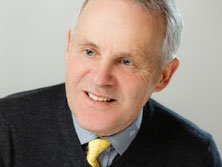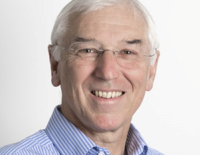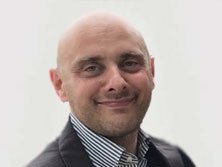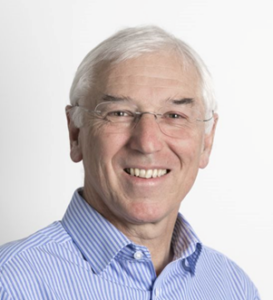Directors
The Directors are CAR’s core resource. Individually they have leading-edge expertise in specific aspects of the built environment. More importantly, when working together their expertise is amplified and leads to interdisciplinary insights.
The Directors of CAR manage the company, ensuring that it is professionally and efficiently run, and resourced to meet clients’ project delivery expectations.
Over the years the Directors have collaborated on hundreds of projects. For each new project CAR assembles a team made up of Directors and Associates, with external consultants when required, providing the range of in-depth expertise to focus on client-defined questions.
Associates
Peter Armitage Energy
An EPSRC-funded PhD student at the University Of Cambridge Department of Architecture. His research is focused on the UK building stock, in particular understanding energy use in the UK non-domestic stock. At CAR he has worked on various aspects of the Cambridge Domestic Energy Model and the UK Housing Energy Fact File.
Peter Baxter Risk
Amy Banks Structures
Amy is a structural engineer working on a variety of projects within the structures team at CAR. She obtained her Masters in Civil Engineering from the University of Nottingham and has been working as a structural engineer for over 10 years. Before joining CAR in 2017 Amy was based in London, working in a design-focused consultancy on projects in central London and throughout the UK, gaining experience in refurbishment projects, new builds and historic structures.
Edmund Booth Risk
A consulting structural engineer specialising in the earthquake resistant design, analysis, inspection and risk evaluation of buildings and other types of structures. He is an Honorary Senior Lecturer at Imperial College, London, and author of the textbook ‘Earthquake Design Practice for Buildings’.
Adam Broadway Energy
A sustainability consultant working on a range of built environment and corporate projects. He brings over 20 years senior management and practical experience in the design, procurement, project management and delivery of affordable housing. He also specialises in community involvement and engagement initiatives. He delivers practical advice and support across sectors.
Helen Bradbury Heritage
Helen is an historic building consultant specialising in heritage statements, impact assessments and conservation management plans. As an architectural historian, her particular interest is garden buildings, especially historic bathing houses. Previously sales and marketing director for Cambridge University Press, she has a wealth of experience managing complex projects and multi-disciplinary teams.
Oliver Caroe Heritage
Oliver Caroe is an architect specialising in ecclesiastical and historic buildings. His work and experience cover many sectors and include pure conservation to major commercial refurbishments, with a particular emphasis on the sustainability of existing and historic buildings. In 2012, Oliver Caroe was appointed Surveyor to the Fabric of St Paul’s Cathedral.
Nick Chapple Heritage
Nick is a heritage consultant who has worked in historic environment conservation for over twenty years, in both the public and private sector. He has considerable experience of writing conservation plans and heritage statements and advising on new design in historic contexts. He specialises in ecclesiastical buildings and is the editor of the journal Ecclesiology Today. Nick studied the conservation of historic buildings at the Architectural Association, graduating with distinction in 2011.
David Chou-Shulin Buildings
An architect in private practice in Shanghai and London, his specialisation is in design methodology and aesthetics. David did his doctorate at the University of Cambridge in the late 1980s. He has taught at the National University of Singapore and published numerous papers in aesthetic journals. He works on sustainability in aesthetics relating to intelligent commonsense and environmental sensibility.
Ian Cooper Energy
Ian specialises in the sustainable production and operation of the built environment, workshop design and facilitation, envisioning, stakeholder dialogue and citizen engagement.
S.Bahar Durmaz Drinkwater Risk
Bahar is an architect who has experience in teaching, research and architectural practice. She has a PhD in Architecture from the University of Nottingham. Her research is focused on urban architecture, public place, environmental psychology and also earthquake resistant urban environments. Currently she is an Assistant Professor and Head of the Department of Architecture at Izmir University of Economics.
Ian Ellingham Buildings
Development consultant with experience in many built projects. He has worked on improved methods of evaluation and decision-making for the construction and property industry, applying techniques from marketing and finance. Co-author (with William Fawcett) of New Generation Whole-life Costing (Taylor & Francis, 2006) and Whole Life Sustainability (RIBA Publications, 2013).
Daniel Godoy-Shimizu Energy
A PhD student in the Martin Centre at the University of Cambridge. His research focuses on energy consumption in the UK building stock, and the potential for emissions reduction through district heating and co-generation. Prior to joining CAR he was with a building services consultancy for several years, working on the services design and environmental strategies for buildings in the UK and abroad.
Aoife Houlihan Wiberg Energy
BSc B.Arch M.Phil PhD RIBA
An international researcher, academic and architect. She worked for 10 years at The Research Centre for Zero Emission Neighbourhoods in Smart Cities, NTNU Norway (2010-2019), then joined Ulster University as Professor and Chair of Research. She has worked at Bath University of Bath since 2023. She is a UK national expert in IEA EBC Annex 89 – Ways to Implement Net-zero Whole Life Carbon Buildings (2023-7) as well as a Norwegian national expert in IEA Annex 72 – Assessing Life Cycle Related Environmental Impacts Caused by Buildings (2017-2023) and IEA Annex 57 – Evaluation of Embodied Energy and CO2 Equivalent Emissions for Building Construction. She specialises in Net Zero emission buildings and neighbourhood design, living labs, embodied and whole life carbon calculation, and dynamic LCA.
Martin Hughes Energy
An applied mathematician who works across multiple areas. At CAR his work has focussed on the simulation of activity-space use in buildings, real options analysis as an extension of whole life costing, and domestic energy modelling. Techniques and tools used include Monte Carlo uncertainty and risk analysis, sensitivity analysis, optimisation, agent-based modelling, discrete-event simulation, Excel and VBA, Java, Octave and R.
Susanna Jenkins Risk
Research associate in volcanology at the University of Bristol. Her principal research interests lie in volcanic hazard, vulnerability and risk assessment, the development of probabilistic assessment techniques and frameworks that inform decision-making, and the investigation, quantification and simulation of eruption impacts on communities and infrastructure for the purposes of disaster risk reduction.
Richard John Energy
Richard’s work on innovative buildings, services, and control systems has been recognised through multiple awards. His experience includes sustainable development masterplanning, smart grids, transport infrastructure, and embedding renewable energy systems at the building and development level. He has also worked extensively to embed sustainable thinking into organisational policies and thinking.
Luca Leone Risk Buildings
MA DipArch DipUDP
Luca Leone is an urbanist working in the field of sustainable development and management of the built environment. In the risk field, he has been responsible for product development and marketing of the Global Event Vulnerability Estimation System (GEVES), CAR’s flagship catastrophe modelling range for the reinsurance industry, and has overseen its development to reflect the growing importance of climate change-related events. He has also developed a sustainable transport strategy for Greater Cambridge.
Mary Livingstone Energy
BA
Mary is a sustainability consultant, with 7 years’ experience focusing on sustainable design and retrofit projects in the residential sector. She has experience of writing industry guidance, including a CIBSE Technical Memorandum on good practice in the design of homes (written in a previous role, due for publication in 2016). She was selected by Building magazine as one of its ‘top 50 sustainability stars’ of 2015, and is currently undertaking a Masters in Interdisciplinary Design for the Built Environment at the University of Cambridge.
Sebastian Macmillan Energy
An architect and writer who has published widely on energy and environmental matters, on the social and economic value of the built environment, and on interdisciplinary teamwork. Consortium Manager of the Carbon Reduction in Buildings Consortium and Course Director of the Interdisciplinary Design for the Built Environment masters course at the University of Cambridge.
Laura Montanini Buildings
Laura is a Chartered Architect with more than 20 years professional experience based in Italy and the UK. She has worked alongside world-leading designers and architects including Ingo Maurer. Laura has a background in music education and has worked with CAR since 2017.
Alice Moncaster Energy
Alice is a Senior Lecturer in the School of Engineering and Innovation at the Open University, and a Visiting Fellow in the Department of Engineering at Cambridge. Her research into sustainable construction crosses the boundaries between academia and practice, and between engineering, architecture and the social sciences. Interests include embodied carbon and energy of buildings, performance of vernacular building materials and typologies, and transdisciplinary research approaches for the built environment.
A Cambridge-based architectural historian, writer and broadcaster, with a speciality in the history of English country houses and related subjects; he has published widely on historic houses and lectured for university and public audiences. He is a former National Trust curator and Architectural Editor of Country Life and has served on several public committees.
Janet has extensive experience of editing and document production and has edited conference proceedings, reports and research papers as well as maintaining specialist libraries and archives. She edited CAR Review and the Bulletin of the Association of Architectural Librarians, and is a member of the Society of Architectural Historians of Great Britain.
Francesco Pomponi
Francesco is an academic and engineer. He joined Edinburgh Napier University (ENU) in 2017 from the University of Cambridge as Vice Chancellor’s Research Fellow. He became Professor in 2021. He is Chair of Sustainability Science and also heads the Resource Efficient Built Environment Lab. His academic expertise lies in life cycle assessment, embodied and whole life carbon, and the circular economy. His work focuses on low-carbon buildings, the measurement, management and mitigation of environmental impacts, and passive design.
Peter Pope Energy
A buildings physicist, providing support for energy modelling projects. Peter is also interested in domestic retrofit techniques and is trained in air tightness testing.
Alexander Rice Energy
Alex is an expert in building performance design, Soft Landings and post-occupancy evaluation. He recently led a year-long research project into the in-use performance of Code for Sustainable Homes Level 5 dwellings in collaboration with Leeds Beckett University and Hill. His work for CAR has included heritage consultancy, airtightness testing and evaluating energy efficiency devices for gas boilers.
Danny Rigby
An applied mathematician working across activity-space use, whole life costing and transport modelling. Techniques and tools used include data mining and visualisation, Monte Carlo uncertainty and risk analysis, sensitivity analysis, optimisation, agent-based modelling and machine learning.
Simon Ruffle Risk
Originally studying architecture at Cambridge, Simon has spent most of his career in industry, developing software for natural hazards risk. He has worked on risk pricing for primary insurers, catastrophe modelling for reinsurers, and has been involved in placing catastrophe bonds in the capital markets. He has many years of experience in software development, relational databases and geospatial analysis and has worked in a variety of organisations from start-ups to multinationals.
Natcha Ruamsanitwong Heritage
PhD MPhil MA (Hons)
Natcha is an architectural historian specialising in twentieth-century architecture and architectural education in Britain. She recently completed her PhD at Cambridge, where her research focused on the work of Sir Leslie Martin. She is currently a lecturer in Architectural History at Northeastern University London.
Nabeel Shaikh Energy
A programmer with a background in Software Engineering and Artificial Intelligence. Current work includes programming low carbon software for architectural use; he has interests in renewable energy technologies, production of renewable energy and conservation of energy in southern Asia.
Peter Studdert Buildings
Peter is an independent adviser on city planning and design with over 35 years experience of working in town planning in local government. A former Director of Planning at Cambridge City Council, he advises Historic England and Design Council CABE and chairs a number of Design Review Panels for London planning authorities, including the London Legacy Development Corporation. He serves on the East of England Regional Advisory Board for the National Trust. Peter is a Senior Member at Hughes Hall, University of Cambridge.
Nicola Terry Energy
An energy consultant with particular experience in evaluating strategies for energy efficiency in the domestic environment. She is author of ‘Energy and Carbon Emissions: the way we live today’ (UIT Cambridge, 2011). She has degrees in both Engineering and Computer Science and in Environmental Studies. At CAR she developed the Cost-Optimal Domestic Electrification (CODE) Model, carried out literature reviews on insulation and thermal storage materials, and she analysed carbon savings from different energy saving behaviours.
Katie Thornburrow Buildings
Katie was brought up in Hong Kong and received her architectural training in the UK, at the University of Bath. She has worked in practice and research, and was a director of CAR from 1997 to 2015. She specialises in the restoration and extension of historic buildings and contributes to CAR’s conservation plan projects. She was elected as a councillor for the City of Cambridge in 2018.
Cleo Valentine Buildings
MPhil MSc BA
A specialist in links between human health and the built environment. Her current research focuses on the impact of architectural form on brain inflammation. This is a major factor in many different health conditions. She previously worked as a computational architectural data systems designer at Open Systems Lab. She is currently studying for a PhD at Cambridge University, using sensors to monitor electrical signals in response to biomorphic design (which mimics nature and living organisms).
Anthony Waterman
An economist with expertise in financial modelling, investment appraisal, and whole life costing. He has provided consultancy on a wide range of complex, multi-stakeholder construction projects. He worked on the CILECCTA project, a European Union sponsored research project to develop a suite of software to enable the assessment of sustainable options and decision support tools.
John Worthington Buildings
Practitioner and academic, focussed on the relationship between organisational and spatial design from the scale of the workplace to the city. He was co-founder of DEGW and from 1993-97, Professor of Architecture and Director of the Institute of Advanced Architectural Studies at the University of York, and is currently Commissioner of the Independent Transport Commission, strategic advisor, mentor, facilitator of change and collaborative urbanist applying the experience gained as a director of the Academy of Urbanism (2009-15).
Giulio Zuccaro Risk
Architect and structural engineer with expertise in earthquake engineering, seismic risk modelling and evaluation, and seismic risk reduction techniques. He is Associate Professor at the Faculty of Architecture, University of Naples, and Director of the Plinivs Centre.
